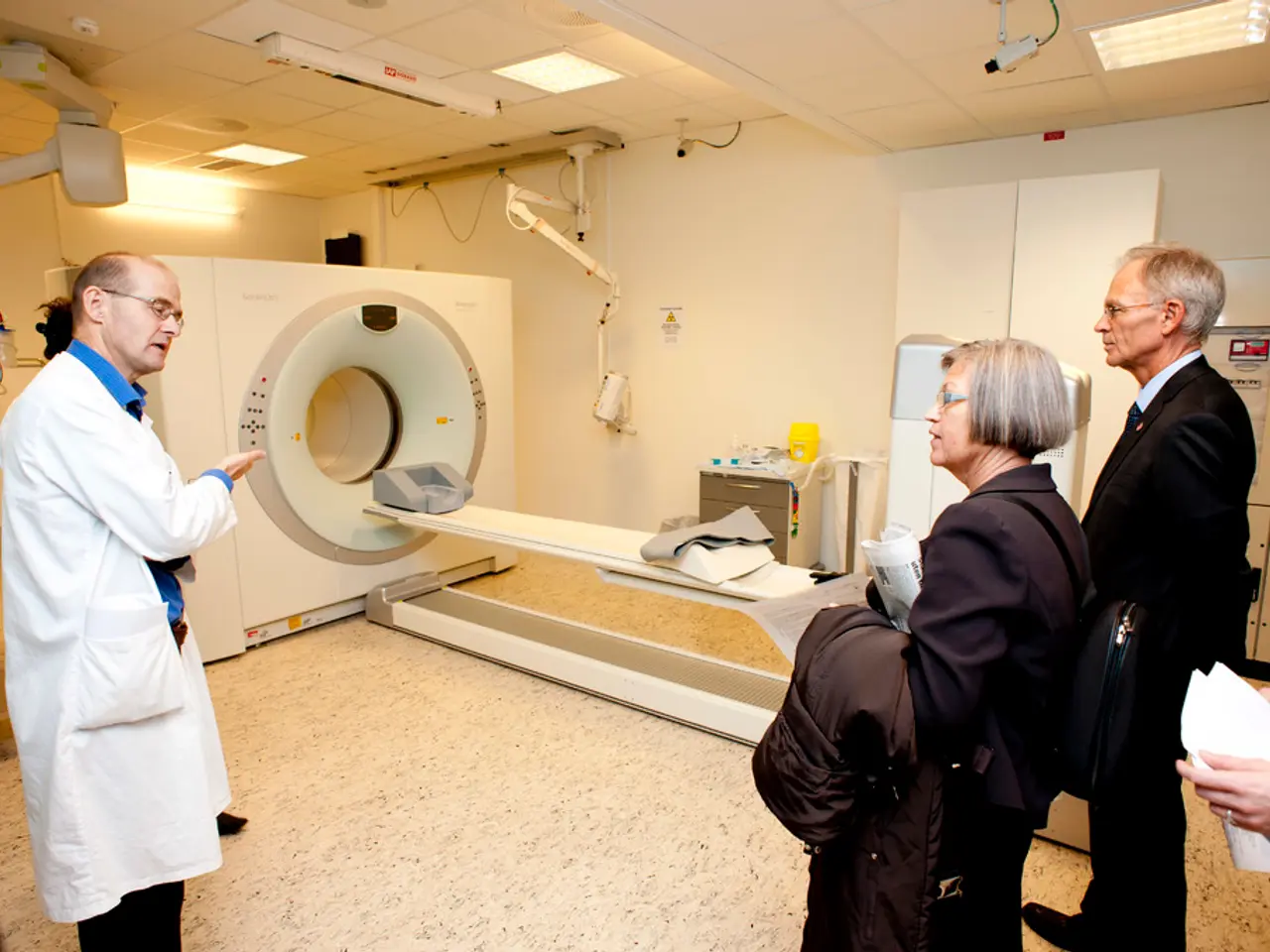Artificial Intelligence's Rapid Adoption by Medical Professionals Could Foster Dependency, Studies Show
In early 2025, a groundbreaking study investigating doctors' dependency on artificial intelligence (AI) in colonoscopy screenings was published in the prestigious journal The Lancet Gastroenterology & Hepatology. The study, led by Dr. Marcin Romańczyk of H-T Medical Center in Tychy, Poland, shed light on potential issues arising from the increasing reliance on AI in medical practice.
The study involved four clinics in Poland, where doctors were introduced to an AI system designed to detect polyps and other abnormalities during colonoscopies. The AI worked in real-time, analysing video from a camera inside the colon. However, the study found a concerning trend: gastroenterologists in Poland were approximately 20% worse at spotting polyps and other abnormalities when using the AI-assisted system.
Dr. Romańczyk is not against the use of AI, but he believes that more studies are needed to understand how AI might be changing the way doctors work in the real world. He suggests that doctors may become overly dependent on AI, relying too heavily on the technology to do certain aspects of their jobs.
Johan Hulleman, a researcher at Manchester University in England, is skeptical about the study's findings. He suggests that statistical variations due to factors such as the age of patients might be behind the apparent drop in detection rates. Hulleman also points out that it's unclear how many of the possible polyps that doctors supposedly missed were actually medically important.
Interestingly, after the AI system was introduced, doctors' detection rates of possible polyps fell when the AI was switched off. This drop, according to Dr. Romańczyk, is real, but studying AI in a clinical setting can be tricky due to the many variables that cannot be controlled.
The use of AI in medical screenings is not a new concept. It has already become increasingly common for routine medical scans, such as scans for eyes, breast cancer, and colon disease. However, the study's findings indicate that even after a short period of using AI, experts may become overly dependent on it, potentially leading to a decrease in their own diagnostic abilities.
This is not the first example of nonexperts doing a worse job scanning images if they know they can get an AI system to help them with the push of a button. The implications of this dependency on AI are significant and warrant further investigation. As AI technology continues to advance and become more integrated into medical practice, it is crucial to understand its impact on healthcare professionals and patients alike.
Read also:
- Nightly sweat episodes linked to GERD: Crucial insights explained
- Antitussives: List of Examples, Functions, Adverse Reactions, and Additional Details
- Asthma Diagnosis: Exploring FeNO Tests and Related Treatments
- Unfortunate Financial Disarray for a Family from California After an Expensive Emergency Room Visit with Their Burned Infant








